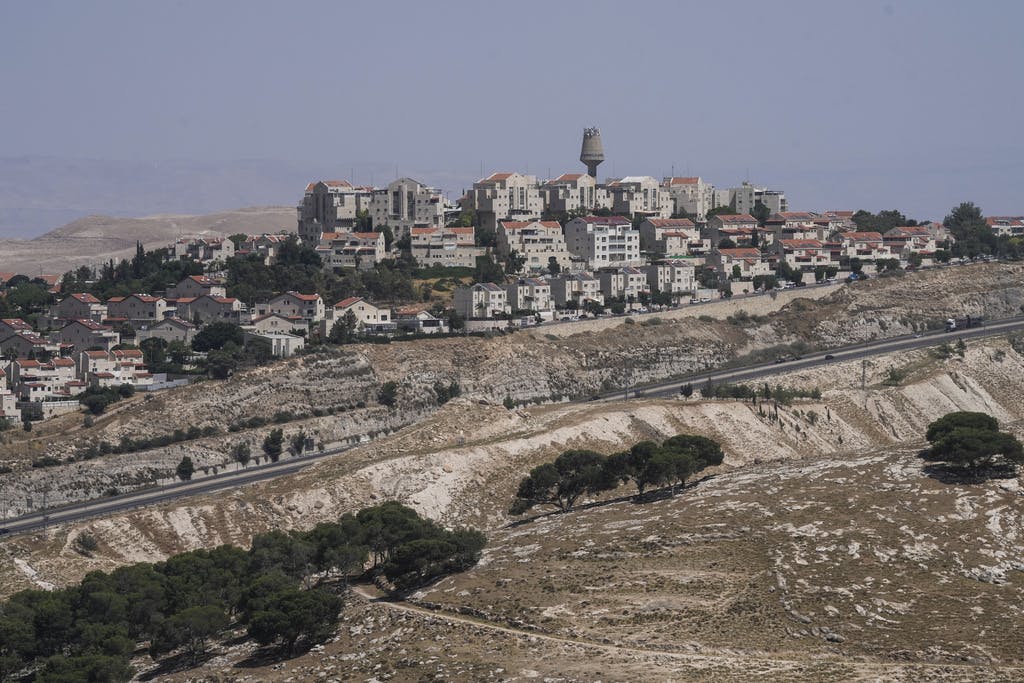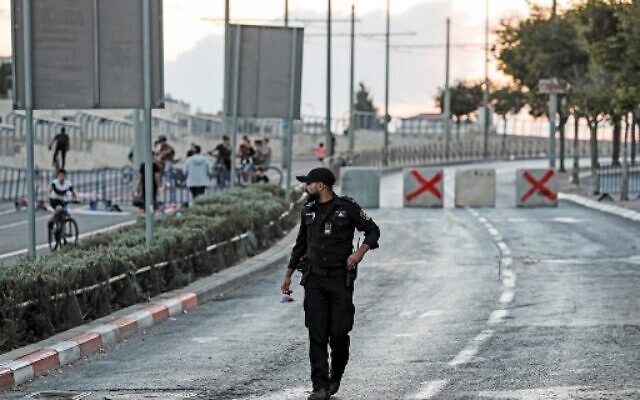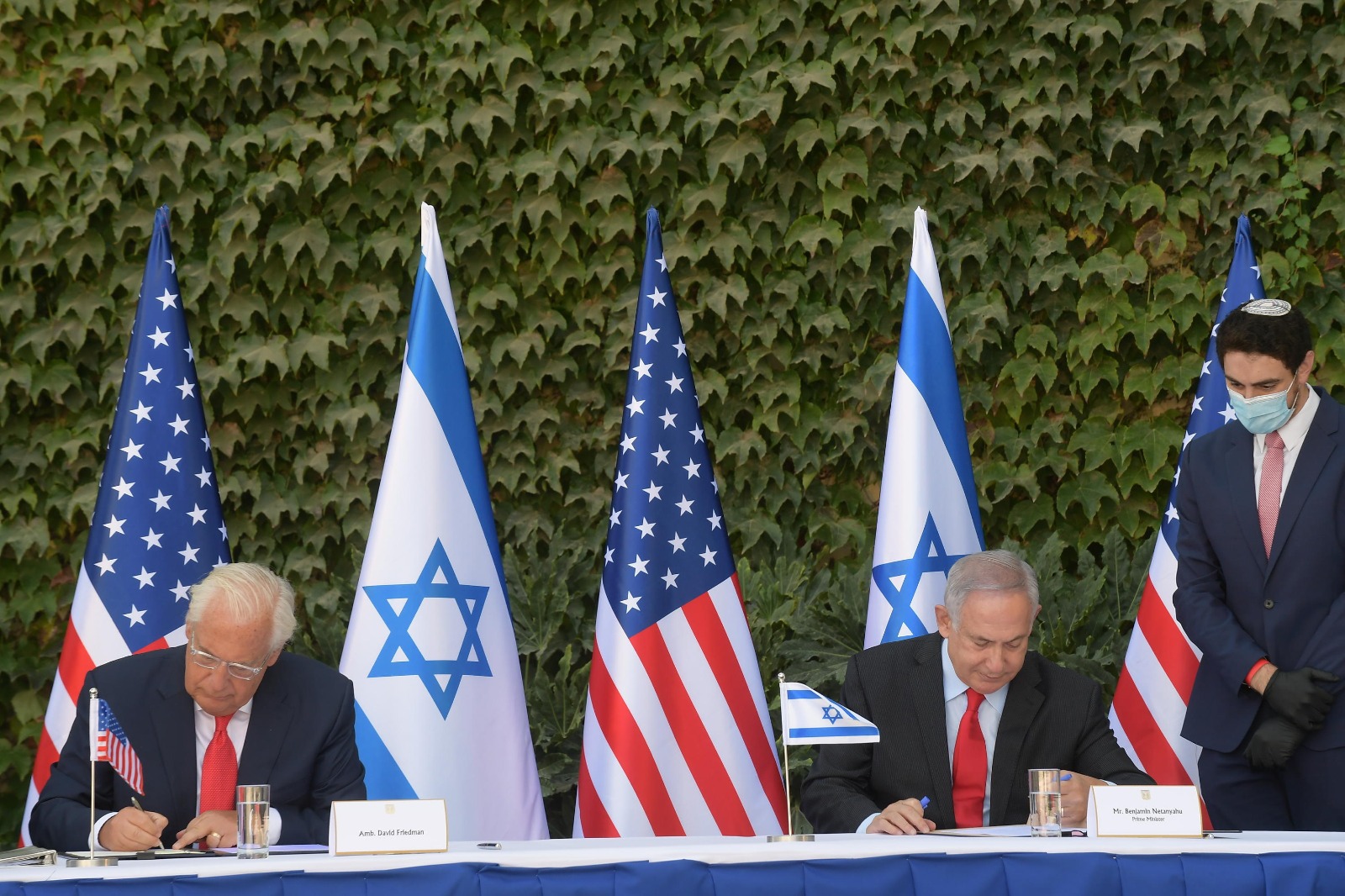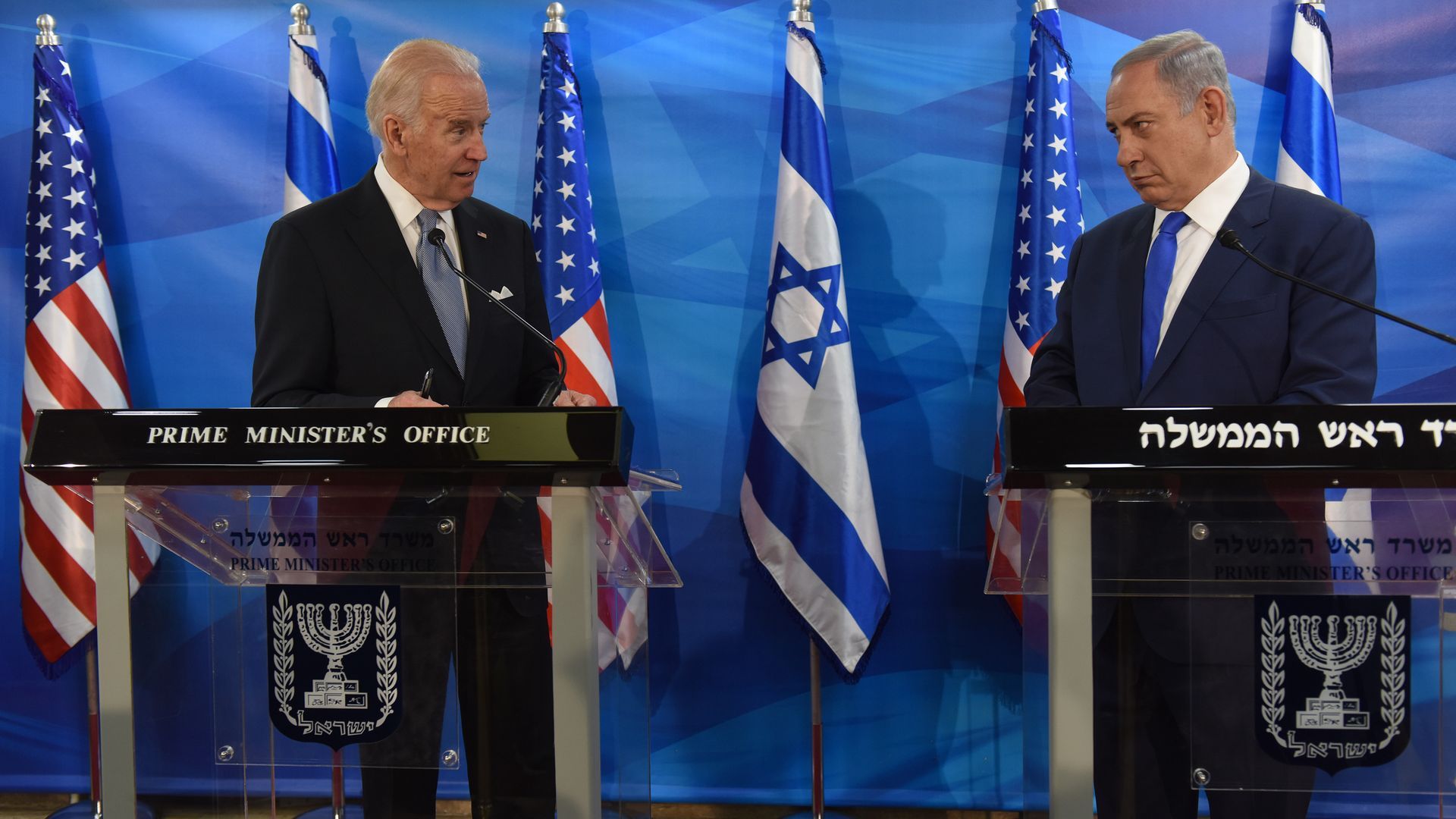Senator Cruz says President Biden is ‘obsessed with undermining Israel.’

SCOTT NORVELL
The Biden administration has informed Israeli authorities that it is reversing a Trump-era policy allowing American taxpayer-funded scientific and technological cooperation with companies that operate in the West Bank, Golan Heights, and parts of Jerusalem, according to reports out of Israel Sunday.
Israeli public radio, Kan News, reported Sunday that the State Department informed Israeli officials that it was returning to an Obama-era directive that there would be no more cooperation in areas beyond the 1967 Green line, according to a report in the Times
Move said to be resumption of policy that was reversed under Trump administration; Foreign Minister Eli Cohen tells reporters that the decision ‘is wrong’
By TOI STAFF

Illustrative: An Israeli policeman walks near cement cubes placed as a roadblock by Israeli security forces on a road linking the East Jerusalem Arab neighborhood of Beit Hanina with West Jerusalem on September 15, 2021
The United States has told Israel that it will cease scientific and technological cooperation with entities in the West Bank, the Golan Heights and East Jerusalem, returning to a long-running policy that had been reversed under then-US president Donald Trump, it was reported on Sunday.
The Kan public broadcaster said the move was a return to the directive that there would be no scientific and technological cooperation in the areas defined by an unnamed US State Department official to the network as beyond the 1967 Green Line and “which remain subject to negotiations on their permanent status.”
In a briefing with reporters on Sunday, Foreign Minister Eli Cohen protested the move. “I object to the decision and think it is wrong. In similar cases in the past, the Israeli government fully reimbursed parties damaged by such decisions,” Cohen said.
The policy was briefly reversed under former US president Donald Trump, when Prime Minister Benjamin Netanyahu and then-US ambassador David Friedman signed an agreement that removed all previous geographic restrictions from the two countries’ scientific cooperation.
The two signed a protocol that amended three 1970s agreements that form the basis for bilateral scientific cooperation.
Those agreements had stipulated that cooperative projects “may not be conducted in geographical areas which came under the administration of the State of Israel after June 5, 1967, and may not relate to subjects primarily pertinent to such areas.”

PM Netanyahu, right, and US Ambassador to Israel David Friedman sign a bilateral agreement at Ariel University, October 28, 2020
An unnamed US State Department official told Kan that the updated directive “simply reflects the position of the United States over the years,” according to a Hebrew translation provided by the outlet.
“We are working toward negotiations for a two-state solution, where Israel lives in peace and security alongside a viable Palestinian state,” the US official said.
The official noted that the US is greatly appreciative of scientific cooperation “with the startup nation,” and emphasized that this would continue.
The Walla news site said Israel had been informed of the decision by the US around two weeks ago and that the decision was most likely to mainly impact research at Ariel University in the West Bank.
The report said that while the decision to reverse the Trump administration’s policy had been made around two years ago, it had only become relevant when a grant application was recently submitted for a scientific project at Ariel University.
At the same time as it informed Israel, the US State Department also notified a number of US ministries of the return to the pre-October 2020 policy, the report said.
There was no immediate comment from Netanyahu’s government on the matter.
The Green Line demarcated between Israel and its neighbors under the 1949 Armistice Agreements that ended Israel’s War of Independence. In the 1967 Six Day War, Israel captured the Golan Heights, East Jerusalem, the West Bank, and the Gaza Strip. Israel later annexed the Golan Heights and East Jerusalem in moves not recognized by the international community, and later unilaterally withdrew from the Gaza Strip.
The Trump administration recognized the annexation of the Golan Heights and also moved the US embassy from Tel Aviv to Jerusalem in a move that, though short of formal recognition, was seen as backing Israel’s claim that the city is its undivided capital.
Israel has in the past signed cooperation agreements that exclude entities beyond the Green Line. The European Union has taken a similar position over the years on not funding projects that are conducted outside the borders of Israel proper.
Biden admin reverses Trump policy that allowed funding to research in Israeli settlements
- Barak Ravid, author of Axios from Tel Aviv

Biden and Netanyahu at a press conference in Jerusalem in March 2016. Photo: Debbie Hill/AFP via Getty Images
The Biden administration notified Israel two weeks ago that it was reimposing a ban that prohibits U.S. taxpayer funding from being used in any research and development or scientific cooperation projects conducted in Israeli settlements in the occupied West Bank, according to three U.S. and Israeli officials.
Why it matters: The Biden administration’s decision reverses a Trump administration policy from late 2020 that allowed U.S. taxpayer funding to be used for science and technology projects in the settlements for the first time since 1967.
Flashback: The Trump administration rolled back the ban in late October 2020, just a few weeks before the U.S. presidential elections.
- The ban had impacted three U.S.-Israeli scientific cooperation foundations, which were barred from conducting any projects in the settlements that received U.S. taxpayer funding.
- Since they were formed in the 1970s, the foundations invested about $1.5 billion in research and development institutions inside Israel.
Behind the scenes: The State Department decided to reverse the Trump-era policy not long after President Biden assumed office, but it didn't need to take any steps to implement the ban until recently, according to a source briefed on the issue.
- After researchers from an institute in the settlements applied for a grant from one of the foundations, the State Department told other U.S. government agencies and the Israeli government that it was reverting to the pre-2020 policy of limiting U.S. support for the activities of the three foundations.
What they are saying: “The Department of State recently circulated foreign policy guidance to relevant agencies advising that engaging in bilateral scientific and technological cooperation with Israel" in the occupied West Bank, East Jerusalem and the Golan Heights “is inconsistent with U.S. foreign policy,” a State Department spokesperson told Axios.
- The spokesperson said that the U.S. "strongly values scientific and technological cooperation" with Israel and such cooperation continues.
- "This guidance is simply reflective of the longstanding U.S. position ... that the ultimate disposition of the geographic areas which came under the administration of Israel after June 5, 1967 is a final status matter and that we are working towards a negotiated two-state solution in which Israel lives in peace and security alongside a viable Palestinian state," the spokesperson added.
- The Israeli embassy in Washington declined to comment.
The big picture: Consecutive Israeli governments have approved new building in the settlements, despite U.S. and other international pressure not to do so.
- The Israeli government committee that approves new planning and building in the settlements is expected to convene on Monday to approve about 4,500 new housing units in the settlements in the West Bank.
- Much of the international community considers Israeli settlements in the West Bank illegal under international law.
No comments:
Post a Comment